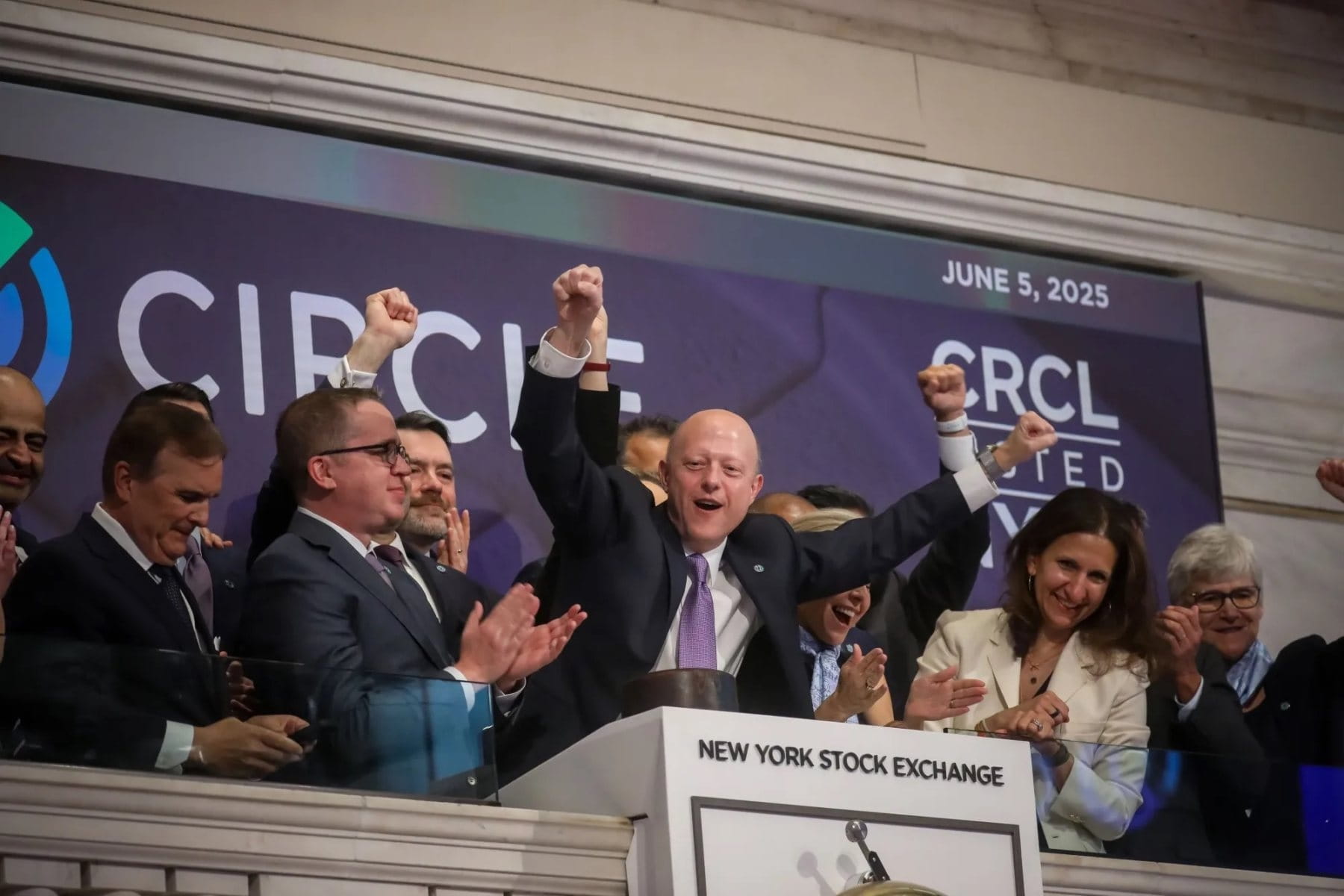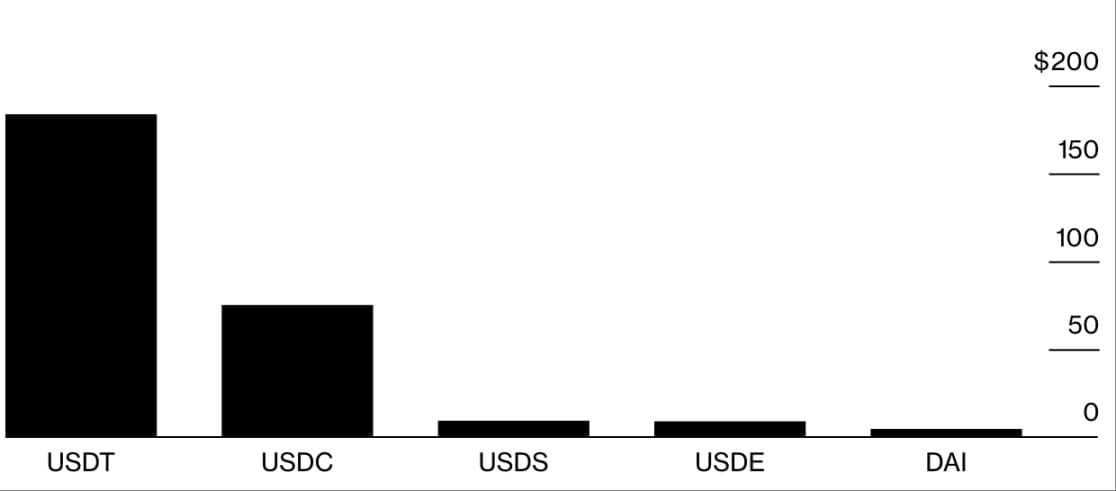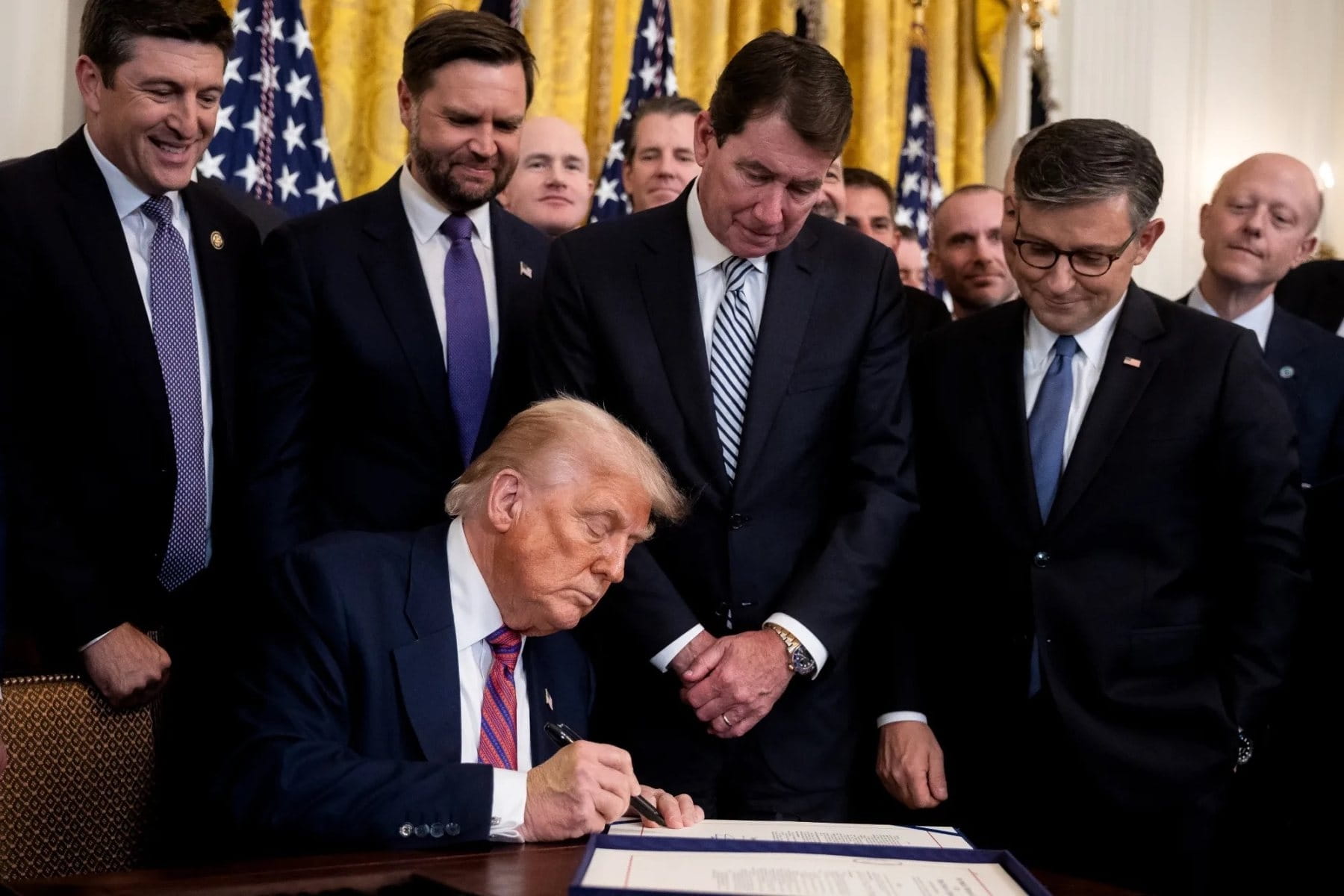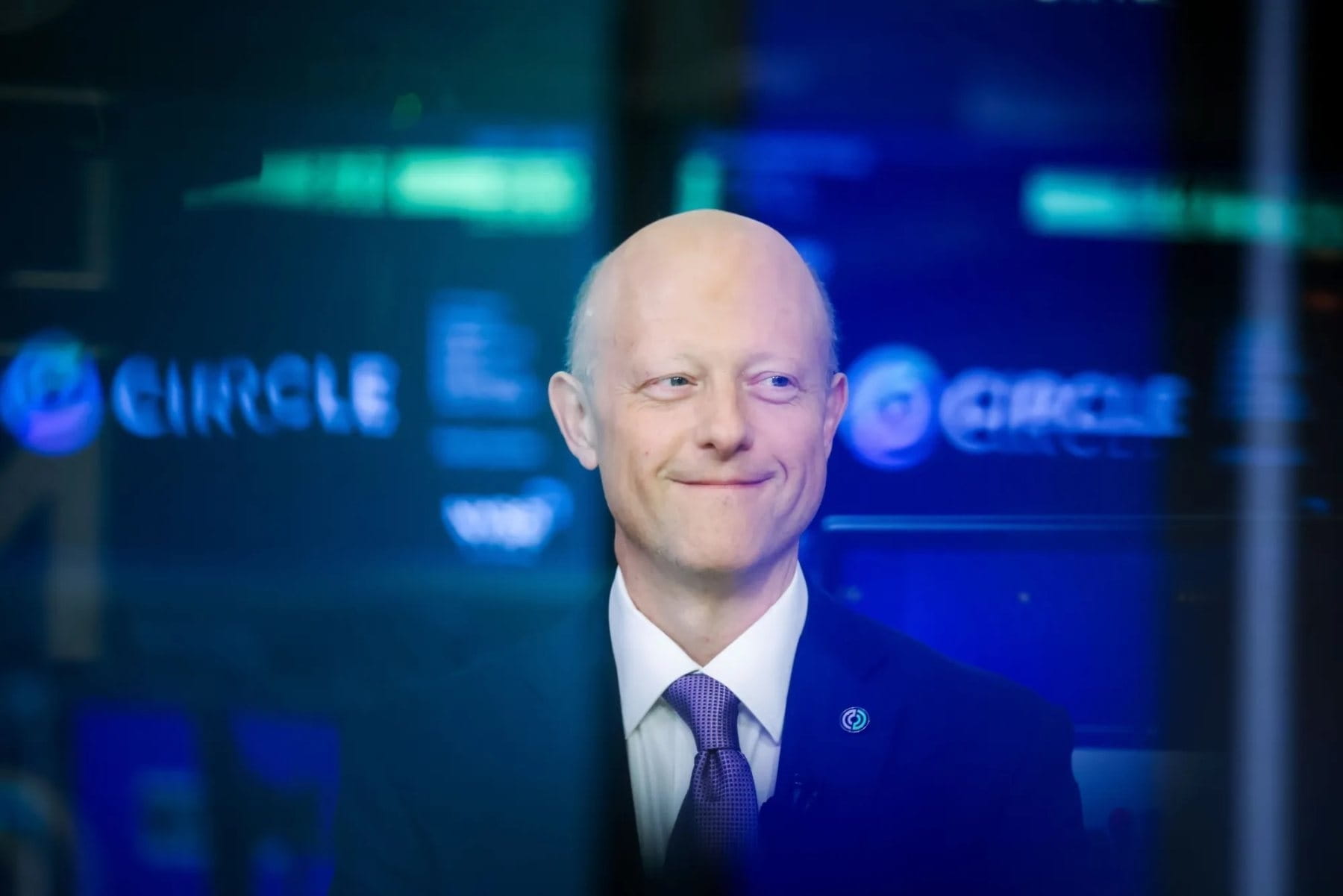Written by: Olga Kharif
Translated by: Saoirse, Foresight News

On June 5, Circle CEO Jeremy Allaire (center) attended the company's IPO ceremony at the New York Stock Exchange. Photographer: Michael Nagle / Bloomberg
Key points:
Although Circle is one of the most mature companies in the stablecoin sector, CEO Jeremy Allaire has also joined the ranks of billionaires, yet he still has an unfinished path of proof.
Circle is facing multiple challenges: fierce market competition, core revenue sources at risk due to declining interest rates, and its main competitor Tether is re-entering the U.S. market.
Allaire is confident that his strategy and Circle will ultimately prevail, and the company will release its earnings report on Wednesday, which will be a new opportunity for him to prove the effectiveness of his strategy.
Jeremy Allaire still has an unfinished path of proof.
As CEO of Circle Internet Financial, the company he leads is one of the top players in the latest trend in cryptocurrency—the stablecoin sector. The business model he has promoted for years has been officially incorporated into the legal framework through a bill signed by President Trump; thanks to the IPO Circle initiated in June this year (which also ignited the IPO wave in the cryptocurrency industry in 2025), Allaire has now become a billionaire.
However, the 54-year-old CEO still struggles to gain widespread recognition in the industry, and Circle is facing multiple challenges. The market competition in which the company operates is exceptionally fierce, and its core revenue sources are at risk of shrinking due to declining interest rates; meanwhile, its main competitor—Tether, which has far greater profitability and valuation than Circle—is returning to the U.S. market—this is undoubtedly a dangerous signal for Circle's domestic position.
Traditional bankers view Allaire as a threat, worried that stablecoins will siphon off bank deposits; meanwhile, his peers in the cryptocurrency field also keep their distance from him. At industry conferences filled with people in hoodies, he is always the 'outsider' dressed in a suit. More importantly, he not only insists on compliant operations but also actively promotes legislative bodies to establish industry rules.
In an industry that prides itself on anonymity, uniqueness, and disrupting the traditional financial system, such a concept clearly cannot win Allaire a 'popularity contest.'
'Jeremy Allaire's strategic path has always been contrary to the Bitcoin ecosystem,' said Cory Klippsten, head of the Bitcoin investment platform Swan Bitcoin. 'The goal of Bitcoin is to separate currency from the state, while his core work is to integrate cryptocurrency technology into the existing fiat currency system.'
Despite the constant skepticism, Allaire remains confident that his strategy and Circle will ultimately prevail. The company will release its earnings report on Wednesday, which will be a new opportunity for him to prove the effectiveness of his strategy.
'To persist, you must have a firm belief in the importance of what you are doing and a strong moral foundation,' Allaire said in an interview. 'You will face setbacks, and everyone will tell you 'you are wrong' and 'you will fail.' But for me, this is not just a business plan—I'm doing this because I truly believe it can make a positive impact on the world.'
Allaire's career at Circle has been full of ups and downs, and the company was founded in 2013.
Circle initially relied on the Bitcoin network as a payment platform but has adjusted its strategy multiple times, coming close to bankruptcy and facing funding difficulties due to the collapse of Silicon Valley Bank. To maintain the operational structure of its core stablecoin USDC, Allaire ultimately had to sell assets and lay off hundreds of people to keep it afloat.
'At Circle's moment of crisis, no one believed I could make it through,' Allaire recalled, 'but I gave it my all.'
Challenges in performance growth
Now, the challenges Allaire faces have shifted from 'survival' to 'proving growth capability.'
For stablecoin issuers like Circle, the primary source of revenue comes from investing reserves in short-term cash-like assets such as U.S. Treasury bills. As interest rates decline, even if Circle's revenue grows, unit investment returns will almost inevitably decrease.
Additionally, the revenue-sharing agreement Allaire reached with Coinbase Global Inc. has significantly squeezed Circle's profit margins. In the second quarter of 2025, the distribution fees owed to Coinbase were more than three times Circle's adjusted profit of $126 million. In contrast, Tether, which does not have to comply with the same rules and audit requirements, reported a profit of $4.9 billion during the same period.
Top 5 stablecoins by market value
Unit: billion dollars

Data source: CoinGecko
Tether's USDT was launched years before Circle's USDC and is far larger—USDT has a market value of $183 billion, while USDC is only $76 billion—therefore, it has greater revenue-generating capacity. Additionally, Tether is also linked to Cantor Fitzgerald, where U.S. Secretary of Commerce Howard Lutnick once worked.
Another new stablecoin competitor, World Liberty Financial Inc., is linked to the Trump family. As the usage of stablecoins surges, hundreds of companies, including Tether and World Liberty, are vying for Circle's market share. Allaire candidly stated in a recent earnings call that this field is a 'winner-takes-all market.'
Currently, Allaire is trying to open up new revenue sources for Circle through other businesses, but Wall Street analysts are generally skeptical about the effectiveness of this move. His recent attempts include launching blockchain, payment networks, and tokenized money market funds.
Nevertheless, Mizuho Securities analyst Dan Dolev bluntly stated: 'USDC is just another stablecoin, nothing special. Circle's stock is overvalued; that's just the way it is.' Among analysts tracking Circle, 4 gave 'sell' ratings, 11 gave 'buy' ratings, and 10 gave 'hold' ratings.
Currently, Circle's stock price is around $104, although far above the IPO issue price of $31, it is less than half of the peak post-listing value. Its market value of $24 billion pales in comparison to Tether's current fundraising activities, which suggest a valuation of $500 billion.
Tech entrepreneur background
Although Allaire previously led two companies to go public—software company Allaire Corp. and video platform Brightcove Inc.—Circle is almost certain to become the core legacy of his career.
Allaire's interest in technology began in childhood: at the age of 11, his family moved to the small town of Winona, Minnesota, and he and his brother JJ were seen as 'a bit nerdy' by others—they would take machine language printouts and painstakingly input them into the computer to write games. 'If you misspelled even one letter, the program wouldn't run, so you had to be extremely focused,' he recalled.
After adulthood, Allaire fully devoted himself to the internet field. He even helped political activist Noam Chomsky digitize his works. After that, he founded several startups. Shortly after leaving Brightcove, he co-founded Circle with his friend Sean Neville.
'I often hung out at his house,' Neville recalled, 'Our ultimate goal was to create an entirely new financial system.'

On July 18, 2025, U.S. President Trump held a signing ceremony for the (GENIUS Act) at the White House, attended by Circle CEO Jeremy Allaire (top right). Photographer: Francis Chung / (Politico) Magazine / Bloomberg
According to the Bloomberg Billionaires Index, Allaire's current personal wealth is $2.1 billion, primarily from his stake in Circle. This figure, while far below Tether CEO Paolo Ardoino's $5.6 billion, is comparable to well-known figures in American business such as Apple CEO Tim Cook and BlackRock CEO Larry Fink.
Allaire stated that he grew up in a family with 'progressive values'—both parents were involved in social service and social activism—but he spoke highly of the experience of attending the signing ceremony of the (GENIUS Act) at the White House and shaking hands with Trump. The act established a federal regulatory framework for stablecoins.
'I feel incredibly honored and excited to be involved,' Allaire said, 'The pen fell to paper, the act took effect, and I was able to play an important role in this process—this is one of the most meaningful moments of my life.'
Public records show that Allaire has long primarily supported the Democratic Party, but Circle donated $1 million to Trump's inauguration committee.
Fitness lifestyle
A few years ago, Allaire started a fitness regimen: he quit alcohol, began focusing on healthy eating, and according to health app data, he now averages 7 hours of sleep each night.

On June 5, Jeremy Allaire attended Circle's IPO ceremony at the New York Stock Exchange. Photographer: Michael Nagle / Bloomberg
Current and former employees both describe Allaire as a 'gentle but strict' boss—he doesn't yell or pound the table, doesn't stay late in the office, but is almost always quick to respond to messages. Some recall having strategic meetings with him while walking in the woods.
Now, Allaire is planning the next steps.
'Building a currency layer on the internet is the goal of phase 1.0,' Allaire said, 'We have achieved that step and are now advancing the planning for phases 2.0 and 3.0.'



